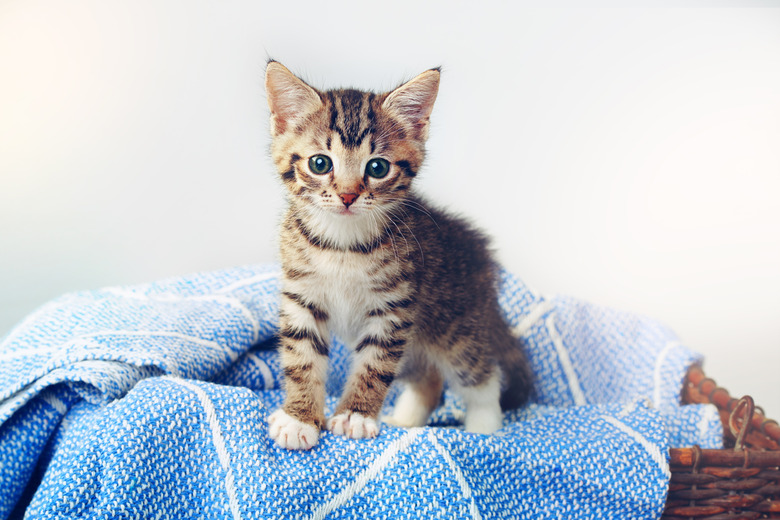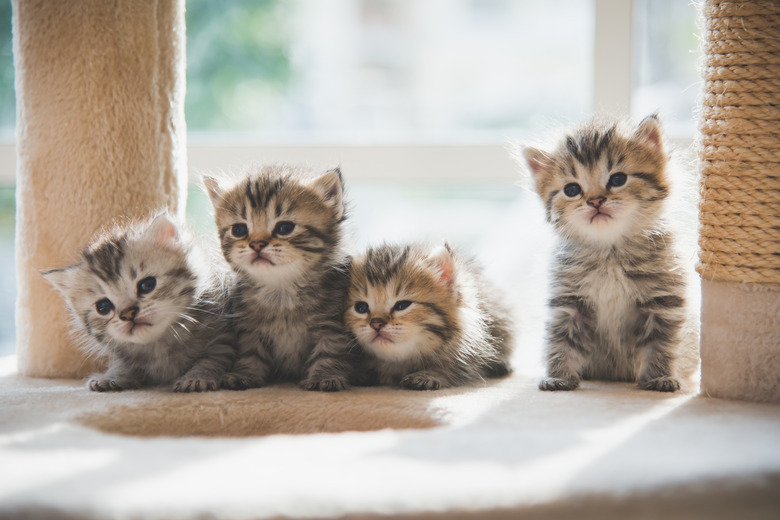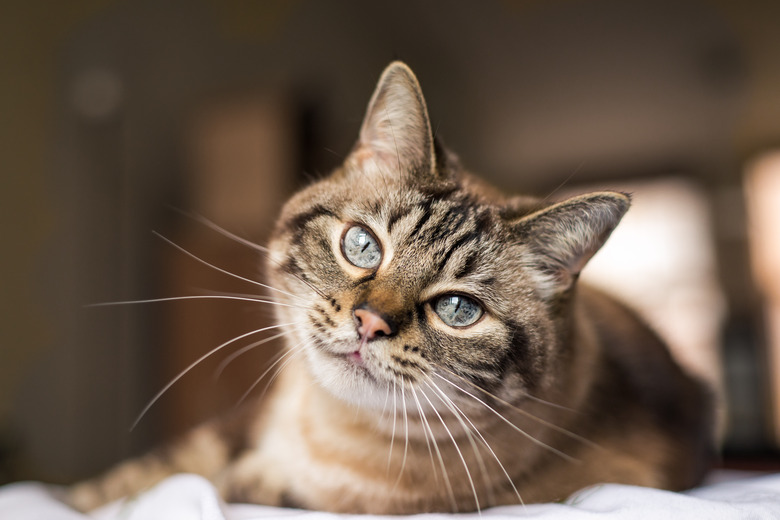At What Age Are Cats Considered Full-Grown?
How big will your cat get and when does he stop growing? Perhaps you have a new kitten? Maybe you got a new older cat and you aren't sure how old they are and if they are going to grow? Or maybe you are worried whether your cat is gaining weight or simply growing bigger? Well, here are the facts we know about cat growth and development that might answer some of these questions you have about your feline friend.
Cats' emotional development
Cats' emotional development
People used to calculate cat age by multiplying every cat year by 7 human years. However, that is a misconception. Your cat's "emotional age" can't be calculated by an exact algorithm because the first year of growth for a cat is a massive aging process. From birth to one year old, cats go through huge changes that cover their childhood, puberty and a little into their early adulthood, so after one year your cat is approximately 24 years old in human development. Does this mean they are fully grown? No. In general, your cat's emotional growth varies, but follows specific milestones:
Ages 0-6 months: These months can be considered your cat's childhood and puberty. Kittens' baby teeth fall out during this time, and their sexual maturity begins. This is when your cat absorbs the most information and training, so now is the time to focus on teaching and interacting with your cat so they learn as much as possible about living with you.
Ages 6 months- 1 year: These years are your cat's teen years. It's important if you plan on neutering to aim to do it prior to the one year (your vet will be able to tell you if they are healthy enough and weigh enough to undergo the procedure). Not only does this help control overpopulation, but it can control some unwanted behavior, like urine spraying and marking, that might continue if you neuter them past a certain age. By the end of the year your cat will be an adult, maturity-wise, which will mean they have completed going through their sexual maturity. At this point in their maturity you should continue training and interacting so they become socialized.
Ages 1 year – 2 years: At this point your cat can be considered a young adult. Your cat will be entering their full emotional maturity and generally their full growth. You can still train your cat during this time, as they are still developing their personality.
Ages 2-6 years: At this point your cat is a full adult. Your cat will be in the prime of their health and their disposition are well established.
Ages 6-10 years: During these years your cat is becoming a more mature adult (think middle aged). This is the time when you might see health issues arise like kidney disease or diabetes. They are more likely to gain weight, and become less active during these years of their life.
Ages 11-14 years: During these years your cat is a senior. This is the time when cats' health usually deteriorate as their lifespan comes to an end. Different cats have different lifespans, so 14 years is an approximation. Some cats live longer than 14 years or shorter than 14 years, which can depend on the breed and the health of your cat.
Cats' physical development
Cats' physical development
The height and weight of your fully grown cat can depend on the breed, and how they were cared for during their youth. Most health professionals agree that cats will reach their full size at twelve months; however, some cats can continue to grow until they are up to four years of age before they reach their full size.
Many times, cats who have not grown up eating vet-approved kitten food, or were strays during their youth, will not be as big as their house-raised counterparts. However, sometimes when raised in a situation with better nutrition available to them, your cat might grow past their twelve month approximation. Cats' weight can fluctuate throughout their life, especially in their laters years (very much like their human counterparts) so make sure to take them to their vet for annual appointments to check in and adjust their food accordingly if they begin gaining weight too rapidly.
In addition, be aware of making time to play with your cat and keep them moving (especially if they are indoor cats) because that can effect their activity levels. and in turn, their weight. Every cat is an individual, so no matter what, their growth and weight will vary. However if you check with your vet and feed them the right food for their age and health needs your cat will be on the right track to reaching the right healthy size for them.
Conclusion
Conclusion
Most veterinary professionals agree that cats will reach their full size at the age of twelve months. However, some cats might continue to grow past that, depending on genetics and the quality of food they received during their early development.
Always check with your veterinarian before changing your pet's diet, medication, or physical activity routines. This information is not a substitute for a vet's opinion.


